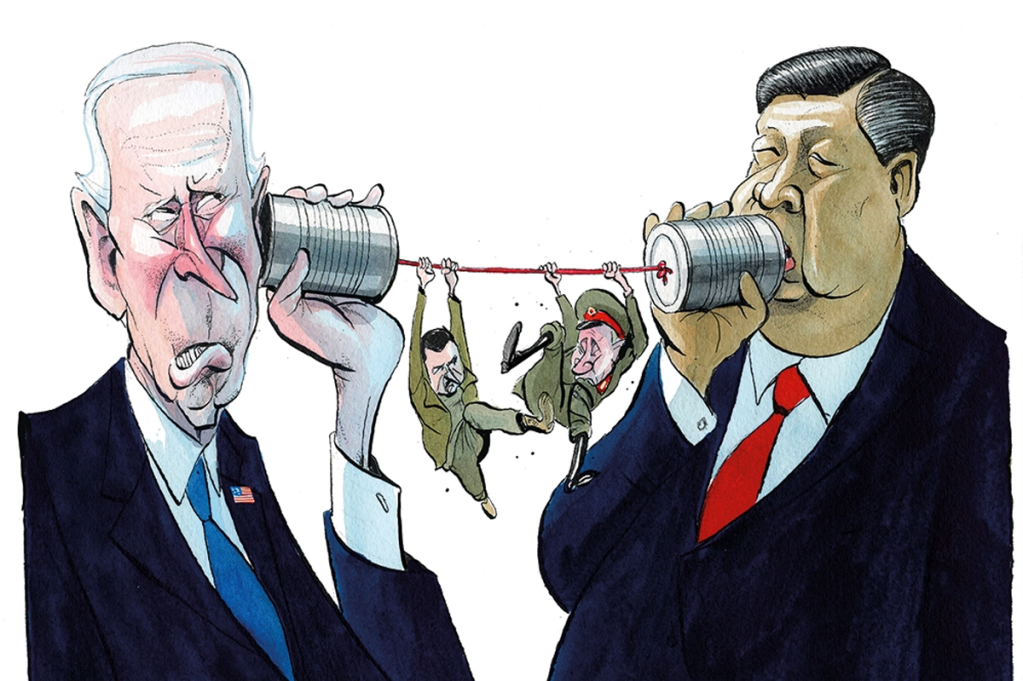No one can say the Iraq War was under-discussed. On the eve of the 2003 invasion, President George W. Bush and his advisors explained and defended Operation Iraqi Freedom to, among others, British prime minister Tony Blair, Saudi ambassador prince Bandar bin Sultan, the United Nations Security Council and skeptical members of Congress, the media and the American public.
Bush even faced opposition from his own secretary of state, Colin Powell, who cautioned the president against invading Iraq with what would come to be known as the “Pottery Barn Rule”: if you break it, you own it.
An experienced military leader, General Powell understood the complexities of war and the importance of having an exit strategy. Powell’s reservations reflected a higher plane of thinking about initiating hostilities, a kind of thinking that was once a central feature of US defense policy.
Bush may have overrode Powell, but at least he had his counsel. We could use some more of that today.
Compared to the Bush White House’s internal deliberations on Baghdad, President Joe Biden’s non-policy regarding American involvement in foreign conflict seems particularly bleak. It’s not that the Biden administration has a bad foreign policy, but that they don’t have one at all.
Instead, the Biden White House seems solely guided by secretary of state Antony Blinken’s empty rhetorical mantra, that the United States fights to defend “a rules-based global order.”
Of course, the “fight” is a bit of a misnomer. Blinken apparently believes that diplomacy is both necessary and sufficient for resolving any and all conflicts. “Deterrence” is not a word in his vocabulary.
Putting so much faith in diplomacy is a mistake. Soft power is, as the late Leslie Gelb once warned President Barack Obama, a chimera. A nation needs a war doctrine, and a military prepared to enact it. Secretary Mattis knew this when he told the Senate that the job of the DoD was lethality.
The odds that someone among Biden’s counselors steps into Colin Powell’s shoes and raises this point are slim. It’s not that there’s no one in this administration with Powell’s courage — though that may also be the case — but that they appear to have never thought about it.
Team Biden’s inability to think around strategic corners has been on display since day one. Consider the administration’s underthought, bloody withdrawal of American troops from Afghanistan. Or national security advisor Jake Sullivan’s boast that his boss was keeping peace in the Middle East just days before Hamas’s brutal October 7 invasion of Israel.
Each time the Biden administration fumbles on foreign policy, it encourages America’s enemies to test our resolve. Today, we’re seeing this play out in Gaza and Ukraine. If Chinese premier Xi Jinping’s recent talk about his “One China” policy is any indication, tomorrow we’ll be seeing it in Taiwan.
President Biden and his foreign policy advisors need to start thinking seriously about foreign policy and a desperately needed war-making doctrine before the United States is pulled into another potentially devastating foreign entanglement.
They can start by looking to their predecessors.
In 1984, defense secretary Caspar Weinberger outlined six rules for assessing possible conflict. The “Weinberger Doctrine” can be broadly understood as a combination of its first and final rule: the United States should not send troops into combat unless the national interest is threatened, and committing troops to a conflict should always be the last resort.
Colin Powell built on Weinberger’s rules with the “Powell Doctrine,” a list of nine questions that must be answered affirmatively before bringing the nation to war. Among the questions: do we have a clear attainable objective? Have the consequences of US action been fully considered? Is there a plausible exit strategy to avoid endless entanglement?
Policymakers failed to adequately answer that final question before invading Iraq and Afghanistan, a decision that had lingering, disastrous consequences. Facing those consequences in 2010, chairman of the Joint Chiefs of Staff Admiral Michael Mullen convened discussions to see how the United States could avoid ever falling into such a boondoggle again.
Mullen concluded that US war making calculations should take into consideration what a country would look like after conflict destroys its physical and civic infrastructure. Put differently: will the United States be tasked with rebuilding every nation to which it chooses to send troops? And can we complete such a task without, as in Iraq, leaving a vacuum from which more adversaries can arise?
In an ideal world, the White House would have teams of people working to build a foreign policy and a war-making doctrine around all of these questions. Short of that, let’s just hope they start pondering a few.





















